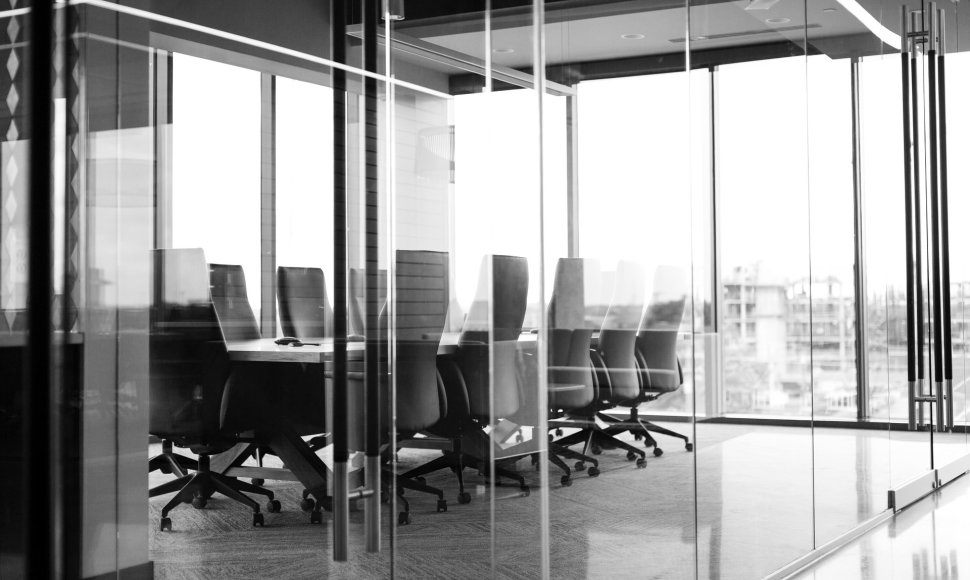As noted by CBRE, even under these extreme circumstances, 50% of companies taking part in the survey (in Central and Eastern Europe, and in the Baltics) did not discuss changes to leasing terms for office-space with office owners.
“Forty-nine percent of office tenants in Central and Eastern Europe did not raise the issue with their office owners. It may be that, faced with an extraordinary situation without previous similar experience, the tenants chose to wait, hoping that the quarantine period would not last for very long. However, if there is a second wave of the coronavirus in autumn, it is likely that tenants will have learned from experience and will be much more active in seeking favourable leasing terms and work conditions. Whatever the case, the crisis brought about by COVID-19 is substantially changing the commercial property market. It will be increasingly focussed on employee-wellbeing and a safe environment, and will force most landlords to go the extra mile,” said Ignas Goštautas, Senior Analyst at CBRE Baltics.
Faced with challenges, some tenants missed flexibility from owners
As the world was dealing with the new infection, one of the main objectives was to ensure safe physical distancing. Due to the spreading virus, 91 percent of companies in Central and Eastern Europe, and 86 percent of companies in the Baltics, chose to work remotely. As not every employee could work from home, flexible working hours, rotation and other options were offered instead.
Many offices provided face masks, disinfectants, and other safety measures for employees, a course of action chosen by 78 percent of office owners in Central and Eastern Europe, and 86 percent of owners in the Baltic states.
According to Mr. Goštautas, anxiety about the future economic outlook, decreased revenue at some businesses, and emptier offices forced some companies to respond swiftly to reduce their obligations. About one in three office tenants in Central and Eastern Europe raised the issue of a potential reduction in their rent, while almost one in five sought a moratorium on lease payments for a certain time, or lease deferral.
“However, not everyone was willing to look for ways to solve the challenges even under such extreme circumstances. Many office tenants did not feel that they were in the same boat with building managers or owners. Some 59 percent of the respondents from Central and Eastern Europe stated that landlords did not ease their leasing terms, while 24 percent said that owners and managers lacked flexibility. The challenges posed by the pandemic have not disappeared and we will have to be deal with them together, which is why closer cooperation and clarification of mutual expectations is a necessary and unavoidable step,” said Mr. Goštautas.
Postponed plans and greater attention to technology and employee-wellbeing
The survey showed that the resilience of Baltic office tenants to the COVID-19 challenge was lower than the average for Central and Eastern Europe. Over the whole region, the pandemic did not affect the lease plans of 31 percent of tenants – while in the Baltics, this share was only 21 percent.
The pandemic forced companies to rethink or postpone plans related to office changes. Planned relocations to new offices, office development, renewal and other changes became shrouded in uncertainty throughout Europe.
“The majority – 52 percent – of our surveyed office tenants expect their business conditions to deteriorate in the second half of this year, 30 percent expect them to remain unchanged, and only 18 percent expect improvement. And, they are most certainly preparing for the likely second wave of COVID-19 in autumn by reducing office occupancy density, providing flexible working conditions for their employees, and making investments in remote-working technology, to which they were forced to switch rapidly in the spring. If this is required for a second time, there will be no surprises – everyone will be well prepared,” noted Mr. Goštautas.
Some 75 percent of the surveyed Central and Eastern European companies claimed to be increasing their investments in information technology to facilitate remote working capacity. However, if necessary, in order to reduce business risk, employee density in offices can be reduced again by rotating different teams, while business consolidation strategies can be reviewed and operations distributed among different markets.
“There is no doubt that some companies are already planning to reduce office space, after seeing the successful results from flexible working hours and working from home. But like other business venues, offices still remain highly beneficial. More space will be allocated to meeting areas and common spaces. In the short run, companies have not yet felt the consequences of the lack of informal chatting. This has an impact on knowledge sharing, employee wellbeing and motivation, and the development of young employees. Furthermore, the area per employee will also increase,” said Mr. Goštautas.
In the long run, 76 percent of surveyed companies will increase opportunities for flexible working hours, and 45 percent will increase the office area allocated per employee.
According to Mr. Goštautas, the pandemic sped up processes related to employee-wellbeing that had already been in progress. The already trending ideas of going green and being sustainable are now being supplemented with the values of health and good wellbeing. Companies are increasingly focusing on their work environment in order to attract and retain talent.
Thirty-two percent of respondents indicated that, in the long term, they will give priority to those offices that take a sustainable environment and employee wellbeing into account.












